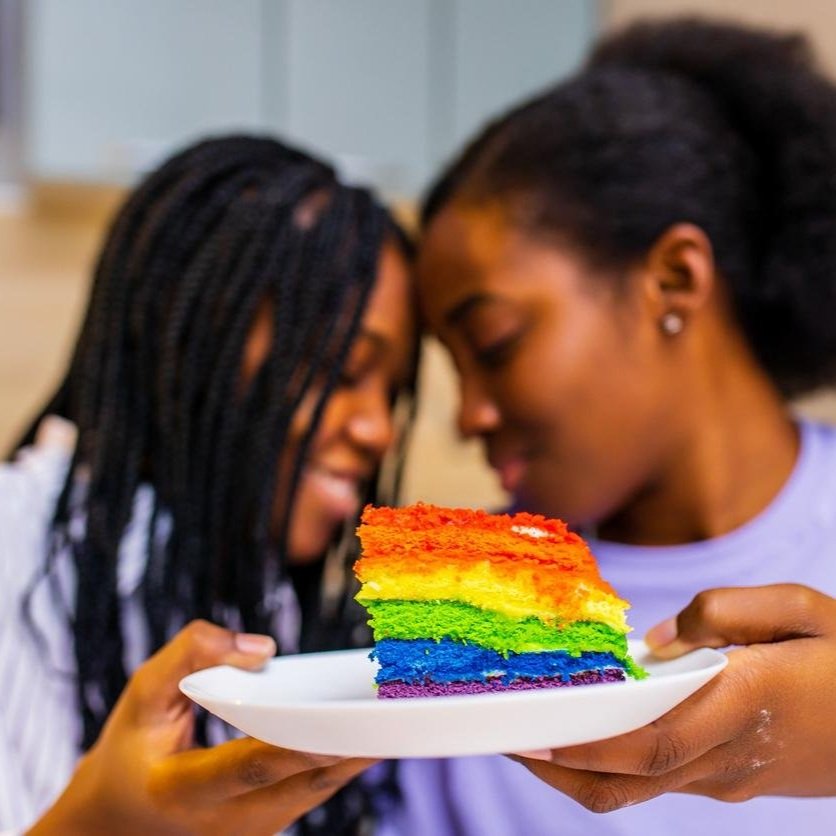Are Relationship Standards Too High or Just Right?
Balancing relationship standards requires distinguishing between essential values and unrealistic expectations to foster healthy, fulfilling connections. We discuss it here!
Photo Credit: Larysa Vdovychenko via iStockPhoto.com
By: Jamila Gomez
In the discourse surrounding modern relationships, one prevalent question is whether the standards we hold for our partners and relationships are excessively high or appropriately ambitious. To dissect this query, it’s crucial to understand the multifaceted nature of what “standards” mean in the context of romantic relationships.
Firstly, standards in relationships often encapsulate expectations around communication, emotional support, mutual respect, and shared values. These benchmarks are not just whimsical desires but foundational elements that foster a healthy, sustainable relationship. Advocates for maintaining high standards argue that they are vital in ensuring that one is treated with dignity and respect, which are non-negotiable for any substantial relationship.
On the other hand, there’s a growing concern that some individuals may harbor unrealistic expectations fueled by external influences such as media portrayals of romance, social media comparisons, and peer pressures. These exaggerated ideals can include expecting a partner to fulfill every need, from being a best friend to an emotional healer, or to adhere to idealized physical or financial criteria. When such elevated expectations are set, they can create a chasm between reality and fantasy, potentially leading to disappointment and relationship breakdowns.
The key, then, to balancing relationship standards lies in distinguishing between what is essential for a healthy relationship and what is an idealized expectation. Communication, respect, trust, and affection are core needs that should not be compromised and are reasonable standards to uphold. Conversely, expecting a partner to look or behave perfectly at all times, or to intuitively understand every need without communication, are examples of potentially unattainable standards that can strain a relationship.
Moreover, it is beneficial to introspect whether one’s relationship standards are self-imposed barriers to intimacy. Personal insecurities and past traumas can often manifest as high walls of expectation, which serve more to protect than to partner. Being mindful and addressing these personal issues can help in moderating one’s expectations to a realistic level.
In addition, it is crucial for individuals to communicate their standards clearly and early in the relationship. This transparency not only helps in finding a compatible partner but also reduces misunderstandings later on. Mutual understanding and compromise are also key; a relationship is, after all, a partnership that thrives on give and take.
While it is vital to maintain certain standards in a relationship to ensure it is healthy and fulfilling, there is also a need to be mindful of setting realistic expectations that foster rather than hinder intimacy. Balancing these standards might require introspection, communication, and sometimes, compromise. Thus, relationship standards are not necessarily too high by default but should be just right to ensure both partners feel valued, respected, and loved.
YOU MAY ALSO BE INTERESTED IN:
SHARE TO SOCIAL MEDIA
It Could All Be So Simple: The Overcomplication of Love and Relationships
Simplifying love by overcoming unrealistic expectations, over analysis, and fear of vulnerability fosters healthier and more fulfilling relationships. We discuss it here!
Photo Credit: ljubaphoto via iStockPhoto.com
By: Jamila Gomez
Love and relationships are often seen as the pinnacle of human connection, yet we have a tendency to overcomplicate them. Despite love’s inherent simplicity, societal expectations, personal insecurities, and modern dynamics often create unnecessary complexity, turning what should be a source of joy into a maze of confusion. Understanding how we overcomplicate love is the first step toward simplifying it and fostering healthier, more fulfilling connections.
1. Unrealistic Expectations
One of the most common ways we overcomplicate relationships is by holding onto unrealistic expectations. Influenced by fairy tales, movies, and social media, we often envision love as a flawless, sweeping romance. This creates pressure to maintain a picture-perfect relationship, leaving little room for imperfection. In reality, love is messy and imperfect. It thrives on mutual effort, patience, and understanding—not grandiose gestures or unattainable ideals.
2. Overanalyzing Feelings and Actions
In the age of constant communication and hyper-awareness, overanalyzing has become a default behavior in relationships. We dissect every text message, interpret tone, and read between the lines of seemingly simple interactions. This mental gymnastics can create unnecessary tension and misunderstandings. Instead of enjoying the present moment, we get caught up in “what-if” scenarios and hidden meanings, complicating what could be straightforward communication.
3. Fear of Vulnerability
Love requires openness and vulnerability, but fear of getting hurt often leads us to build walls around our emotions. We engage in mind games, avoid direct conversations, or hide our true feelings to protect ourselves. Ironically, these behaviors create barriers to genuine connection and trust, leaving both partners feeling confused and disconnected. Embracing vulnerability may feel risky, but it is essential for authentic relationships.
4. Seeking Validation
Another way we complicate love is by seeking validation from our partners rather than focusing on self-love. When we rely on someone else to define our worth, relationships can become transactional, with love being conditional upon meeting specific needs or expectations. This creates a cycle of insecurity and dissatisfaction. True love flourishes when both partners feel whole and secure within themselves.
5. Ignoring the Power of Simplicity
At its core, love is about mutual respect, care, and commitment. However, we often underestimate the power of simplicity—spending quality time together, expressing gratitude, and being present. These small, meaningful actions are far more valuable than over-the-top gestures or attempts to over-intellectualize the relationship.
By letting go of unnecessary complexities, we can rediscover the true essence of love: connection, trust, and shared joy. When we simplify love and relationships, we make space for growth, intimacy, and happiness—proving that the best things in life are often the simplest.
YOU MAY ALSO BE INTERESTED IN:
SHARE TO SOCIAL MEDIA
Toxic Relationships: 10 Signs You Are Becoming the Toxic One
Although we don't always want to admit it, sometimes when a relationship is sour, it's because we're the problem. Here are 10 signs that you are becoming the toxic one in your relationships!
By: Jamila Gomez
No relationship is perfect. Perfection in any aspect is not a real thing anyway. But I can guarantee that every relationship you’ve ever been in – whether it’s romantic family, platonic, or working – has endured some sort of strain at some point. Although we don't always want to admit it, much less are able to recognize it, sometimes when relationship is sour, it's because we're the problem. Or at least half of the problem. Don’t believe me? Here are 10 signs that you are becoming the toxic one in your relationships. See if you recognize yourself in any of it.
1) Lack of Responsibility
You don't take responsibility for your part in things falling apart or going wrong. You always blame others or you always choose to remain in situations that allow you to avoid accountability.
2) You Always Have to be Right
You only choose to talk to people who agree with you. You never admit your mistakes or when you are wrong about something. Remember, it’s alright to adjust your thoughts and opinions when presented with no (to you) information. But you need to be open to understanding that you ain’t always got the answers. Nobody likes a know-it-all.
3) You Harbor Resentment
You can't/won't let things go. Either resolve the issues or learn to let it go.
4) You're a Control Freak
It has to be your way or no way. You always have to be at the center of everything. Or you always have to take the reins in any given situation so that it will go your way.
5) You Lack Communication Skills
No one is a mind-reader and you can't expect people to know how you feel if you purposely say nothing. And when you choose to stay silent and not having your needs met, you don’t have the right to be upset with the other person. Closed mouths don’t get fed.
6) You Can't Be Trusted
You are sneaky and dishonest. Going behind someone’s back and doing things you know would hurt them is very toxic. And you can’t use the excuse of “I didn’t tell you because I didn’t want to hurt you” when you get caught in the act. If you don’t want to hurt someone, don’t do the thing that you’d feel the need to be dishonest about later on in the first place.
7) You're Always in Competition With Others
You're obsessed with one-upping or being better than others rather than just being the best version of you that you can be. Or you constantly compare yourself to others you think are doing better than you. The grass is always greener on the other side – until you see the other side. Then you realize your lawn was fine.
8) You Become Unwell
You neglect your mental and physical health. When you don’t take care of yourself, you become no good for other people. Sometimes this is unintentional, and an underlying issue may be at the helm. But if you’re purposely letting yourself go, it can hurt the relationships you’ve built.
9) Your Relationships Are One-Sided
You're always taking/receiving but never at least offering to give/do (when you know you're able). It’s one thing to genuinely need help, but if you’re constantly taking just to take, you’re toxic.
10) You're Emotionally Manipulative
You make people feel guilty for not being your perception of perfection. No one is obligated to live up to your expectation, especially when you don’t even do it.
I hope that helps.
YOU MAY ALSO BE INTERESTED IN:
SHARE TO SOCIAL MEDIA
Gray Expectations: 4 Tips For Navigating Through The Talking Stage
Going through the talking stage will require understanding, accepting, and embracing the idea that you have absolutely no control over anyone! Here are 4 tips to help you navigate through the talking stage!
By: Kathleen Santos
Who else can relate? It’s a match! Attraction was immediate based on each other's profile pics - so we swiped right. Or maybe we matched because we share a similar ideal and agree that people who find it fascinating to debate about ‘pineapples on pizza’ are corny. Maybe we’ve known each other from work, and one of us has only recently become single after being previously attached.
Regardless of how it happens, the connection leads to more dialogue, an exchange of compliments and lots of flirtatious small talk. Eventually, we link up, chemistry is dope, and at this point, no one is giving off any creepy or psycho vibes. And so, our arduous dating journey begins.
Establishing a connection with someone you’re attracted to in-person may be more difficult to maneuver for some, but it’s not impossible as long as you’re being yourself. And with 24/7 access to potentials via dating apps and social media, shootin’ your shot is even easier since it requires little effort, just some audacity!
With billions of people on this planet, the odds on a good set of options, are in our favor. Whether you’re dating with intention or just looking to add to the roster, we can all agree that this part of the process should be pretty easy. If you don’t think so, then you’re not ready to be out here just yet. Take your time and try again later.
The next phase of the dating journey, however, could get more awkward and problematic. At the beginning, we are likely playing it real cool. We’ve probably agreed that we’re in this to get to know each other, have fun, and of course, “We’ll see where it goes...” No pressure. Before we know it, we’re spending more time, we’ve got the bedroom mixtapes on replay, and we’re really vibin’. Inevitably, someone catches feelings. Now what? Welp… We have now entered into an area of uncertainty or a space of gray expectations.
To be clear, this concept is most relevant when we’ve been hanging out for at least a couple of months, give or take a month. We’re still single, we see each other regularly, but we’ve not talked about being exclusive, so there aren’t any titles. But could we be headed in that direction? Our relationship status is unclear just as our expectations might be. Should we be planning to see each other regularly every week? How often? What are the rules around daily calls and texts? What do I tell my friends or family who are curious about you? What about my roster? Am I supposed to be giving it up? If I do, you definitely need to give up yours. Is this even the time to have this conversation to define this relationship? What are we doing?? What are we??? Ugggghhhh…
Managing the noise and our own well-being can be tricky when we are dating in a hookup culture that breeds anxiety, ambiguities, and situationships. Those looking for answers to these questions of who/what/where/how/why, might turn to Youtube or IG relationship gurus, dating coaches, and/or their friends who all have opinions and experiences to share about ‘what men/women really want’ or ‘how to get him/her to commit’. Save yourself some valuable time in analysis paralysis and leave all that alone. If you do find yourself tumbling down this vast rabbit hole though and getting yourself stressed… please read on.
Being able to effectively navigate through this gray area will require understanding, accepting, and embracing the idea that you have absolutely no control over anyone, but you! So, to help you get through to the other side, keep the following in mind:
1. CoMmunicate, Communicate, Communicate
Suck it up, and talk it out. Be open and ensure that the two of you are on the same page about what you’re doing, so that you can move accordingly.
2. Require Respect and Healthy Boundaries
If the timing isn’t right to commit and slap a title on the relationship, but you decide to keep hanging out, then so be it. Understand, accept, and embrace this decision with no other expectations. It will be important to continue to require respect and healthy boundaries, whether or not there is a commitment, so leave no room for misunderstanding there.
3. Keep The Focus On You!
If the person you want isn’t in a position to reciprocate, you need to STOP expending more energy and just match theirs. Be committed to getting yourself ready for the right one who will be decisive and equipped to respond correctly. In the meantime, keep your roster. Get your mind, body, soul and bag right! Stay productive, booked, and busy!
4. Appreciate The Now
Maintaining a grateful mindset opens the door to more opportunities and results in benefits that include enhanced physical, emotional and mental health. So, be intentional about taking in the sights, sounds, and smells every day. Be aware of your feelings during the highs and lows, be present in all of it. Be thankful for the wins and lessons. No one needs to be worried about yesterday, it’s long gone. And, while we can keep an eye on the future, we don’t live there. Let’s normalize and cherish being grateful and fully present.
Case in point, Miss Lori Harvey. While some may find her lifestyle choices controversial, Twitter has very recently reminded us that she might be able to teach us a few things. I mean, she is ‘Act Like a Lady and Think Like a Man’ personified (no doubt thanks to the Coach himself, Uncle Steve Harvey), so we should consider taking notes.
Lots of people out here are happy to judge her for what she does or doesn’t do, how she lives her life, or her choices in men, but I can’t hate! At this point in her life, Lori is doing what she is supposed to be doing. She’s single, taking care of herself, living her life unapologetically, minding her business, doing what she wants and whoever she wants. Can’t be mad at that. What’s even more impressive? While she’s open to sharing, she’s not saying a damn thing more than she needs to about what she’s doing nor is she getting caught up in foolish gossip! And most importantly, she is not letting any man stress her!
In the meantime, Lori is continuing to mind her own and letting us in on who is putting a smile on her face (for now) as she pleases. And by the looks of Michael B. Jordan’s grin these days, he is loving being posted up.
Bottomline: When you're having to navigate through a situationship with gray expectations, remember that it has less to do with the other person and more to do with ourselves. Your time is not frivolous. Let them know it’s earned. Keep the focus on your preparation, so when your level-up comes around, you are ready!
Lori Harvey and Michael B. Jordan
YOU MAY ALSO BE INTERESTED IN:
SHARE TO SOCIAL MEDIA
Understanding The 5 Love Languages: What's Yours?
We all express and receive love differently! Do you know your love language?
By: Kathleen Santos
Have you ever taken the garbage out for your girlfriend without asking and she didn’t thank you? Or maybe you attempted to surprise your husband by door-dashing some lunch, but he complained that it was a waste of money and impersonal. Have you tagged your boyfriend on your IG or Twitter to wish them ‘HAPPY BIRTHDAY!’ and he didn’t bother to like it…just ignored it?
Now, we all know that these types of situations happen all the time and a fight is 99.9% inevitable each time, right? Someone most definitely will end up getting the silent treatment or maybe even yelled at, while the other likely would feel pretty unappreciated or taken for granted.
So, what is the secret sauce to avoiding some of this drama? This might depend on who you ask, but according to author and marriage counselor, Gary Chapman, Ph.D., if we want to be clear about what we want, avoid unnecessary drama, and get our romantic relationships to really flourish, we need to learn how to speak each other's language.
We all express and receive love differently. Even if you’ve just started dating someone special, are in a newly committed relationship, or if you’ve got some good time-in as an established couple, we can all agree that we all have experienced misunderstandings in matters of the heart and in the end, we all just want to be loved and understood. For nearly 30 years, Dr. Chapman has been helping to improve relationships with his very practical approach to understanding the differences in how we communicate love, so that we can understand each other on a deeper level. And bonus! This will likely keep us out of the petty drama too...
Let’s take a look at what he’s described as the Five Love Languages:
Words Of Affirmation
When this is someone’s primary love language, it means they need words of affection, praise, and encouragement. Text them a motivational quote on their way to a job interview, pray with them when they’re going through a rough time or give them a call to let them know they’re on your mind.
What won’t work? Undue criticism, harsh words or a rough tone.
Quality Time
This person’s love language requires your full attention as a way to show your love and affection. Be fully present, focused on them. Cook dinner or do laundry together! Be fully engaged when he talks to you about the importance of voting in local elections.
What won’t work? Checking your phone every few minutes. And don’t wait too long between meetings please.
Physical Touch
For this person who has this as their primary language, love and affection is expressed nonverbally. This could mean spooning in bed, a long hug before you go to work, sitting close to each other while watching some tv, or holding hands from the car to the grocery store.
What won’t work? Simple...physical neglect!
Acts Of Service
When this is someone’s love language, it means they feel loved and appreciated when you do things that they would find helpful or kind, big or small, especially without them asking you! This could mean taking his car to get the oil changed, folding the laundry that’s been sitting in the dryer, or post your favorite picture of her with flames!
What won’t work? Overcommitment, breaking promises.
Receiving Gifts
For this person, it’s not necessarily all about expensive gifts. Love and affection is expressed best if you put some careful thought behind it. While they probably won’t complain about being gifted a luxury brand purse or the latest Samsung Galaxy for their birthday, she’d really appreciate it if you commemorated her recent promotion with her favorite perfume or if you bought him that PS5, just because...
What won’t work? Buying random presents with no meaning. Don’t you dare forget birthdays, anniversaries.
Communication is at the heart of any solid relationship. Feeling like we are being loved as we understand love to be is everything! Putting in the time to understand each other’s love language and adjust how we communicate, not only is going to score you major points with your loved one, but they’ll recognize that you’re reinforcing your commitment to them by prioritizing their needs. The secret sauce is pretty practical advice, there really is no rocket science here. Take the quiz to determine your language!
YOU MAY ALSO BE INTERESTED IN:
SHARE TO SOCIAL MEDIA
21 Questions Every Couple Should Ask On Date Night
Whether you’re going out for a romantic dinner with your partner, or you’re staying in for some netflix and chill, here are 21 questions every couple should ask on date night!
By: Omar Cook
Getting to know your partner is essential to having a great relationship, and communication should be a top priority. Sometimes just sitting down to have a simple conversation about life can be a great date idea. Whether you’re going out for a romantic dinner with your partner, or you’re staying in for some netflix and chill, here are 21 questions every couple should ask on date night!
Questions About You?
1. What is your ultimate goal in life?
2. What is the craziest thing you’ve ever done?
3. Do you have any regrets?
4. What’s one thing I don’t know about you?
5. What scares you or makes you nervous?
6. What is your most proud accomplishment?
7. Where do you see yourself in 5 years? 10 years?
Questions About Me?
1. What are 2 facts about me?
2. What do you like about me the most?
3. What’s 1 thing that you think I can do better?
4. What am I passionate about?
5. What is my favorite song/music artist/movie?
6. What is my dream job?
7. What are my biggest turn-ons? Turn-offs?
What About Us?
1. What do you enjoy about our relationship the most?
2. What is your favorite memory of us?
3. What is the biggest weakness of our relationship?
4. Where would you prefer to settle down as a couple?
5. What is the greatest strength of our relationship?
6. Where do you see us in 5 years?
7. What should we do together that we haven’t done already?





























